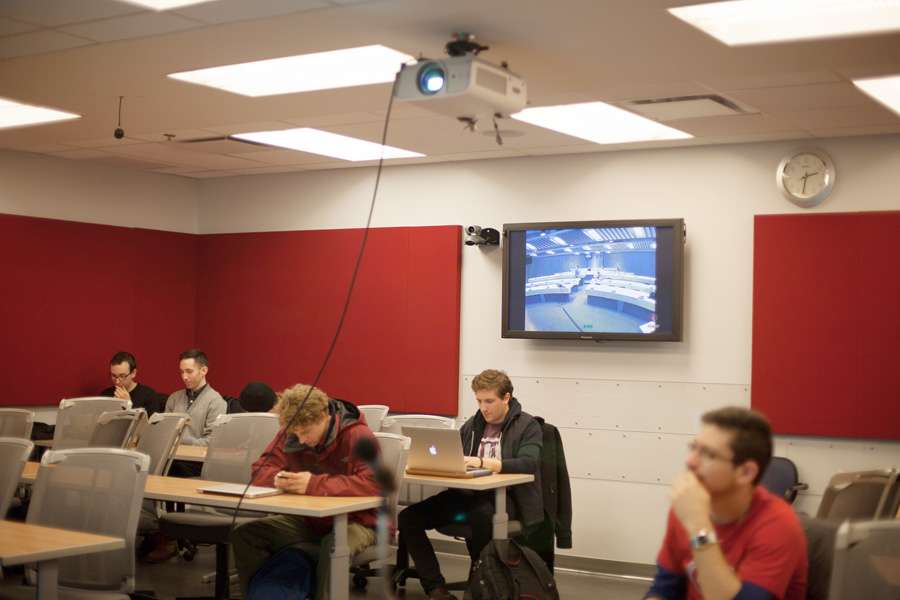Ken Dryden is taking technology in the classroom to a new level this semester, with a Canadian Studies course that uses technology to connect classes at McGill and the University of Calgary.
As a former Montréal Canadiens goalie, lawyer, and Liberal member of parliament, Dryden has been a university lecturer for the McGill Institute for the Study of Canada since 2012.
His seminar “Making the Future” challenges students to engage with current Canadian issues and their future. Topics include health and healthcare, Canada and the world, diversity, and public engagement. While Dryden has taught this course at McGill for three years, this is the first year he is teaching the course between two universities.
“The idea was that if it can be done in one place, then it can be done in more than one,” Dryden said. “Let’s see if the premise of the course works, and that it’s engaging and useful, and then let’s see if we can do it in two places.”
Dryden proposed the idea to universities across Canada, and Calgary was the first to respond with interest.
“Originally, I thought that I would just travel to the different places and deliver [the course] twice,” he said. “It was actually [the University of Calgary’s] idea to do it electronically.”
Dryden travels back and forth between the two campuses, teaching nine classes at McGill and five at Calgary. There are multiple screens in both the McGill and Calgary classrooms, where audio and video of the classrooms are live streamed to each other.
The typical structure of the class includes a guest lecturer, a question and answer period, and time for discussion of the issues.
“The format of it is actually entertaining,” Patrycja Nowakowska, an McGill L3 law student in the class, said. “Seeing Calgary being teleported to us is really neat.”
Video streaming is only one part of how the students interact with one another. Their first assignment was a paper completed in groups of two or three McGill students and one Calgary student, which required interaction over the Internet outside of class time.
Dryden said technology and technological capability is a lesson on the future in itself, and that it’s necessary to use it to prepare students for their work later on in life.
“A lot of your work in the future will be dealing with people at a distance, people you don’t know, people who may not have the same work styles, who may not have the same capacities in their space,” he said.
Students found that the group assignments were fairly simple to organize with minimal complications.
“The time difference is really the only challenge, finding a time when everyone can be on Google Docs or on Skype,” Lawrence Angel, U2, arts, said. “We form connections with these people.”
Dryden said he hopes the discussion of the issues reaches into the future and affects how students might deal with them 40 years from now. Since the students will be the ones working in the future, he wants them to engage with these issues now.
“If you were going to be working for another 40 years, how would you see healthcare? How would you approach it differently?”
Students have reacted positively to Dryden’s class and his technology-based teaching style.
“He’s an excellent facilitator; he knows the right words to pick to really engage the students to think deeper beyond the first level of thinking,” Zack Barsky, U3 Management, said. “He really makes you think about what you’re saying, why you’re saying it, [and] how it’s important.”
Dryden hopes to expand the course to more universities over the next few years.
“We’re always working towards 2017—the 150th anniversary of the country, where there is a natural instinct to stop, look around, see where we’ve been, [and] ask ourselves where we want to go,” he said. “[The year 2017] can carry that kind of larger national conversation, if, in fact, we have the structured way of having that happen. So part of all of this is to connect [the students] to that.”








